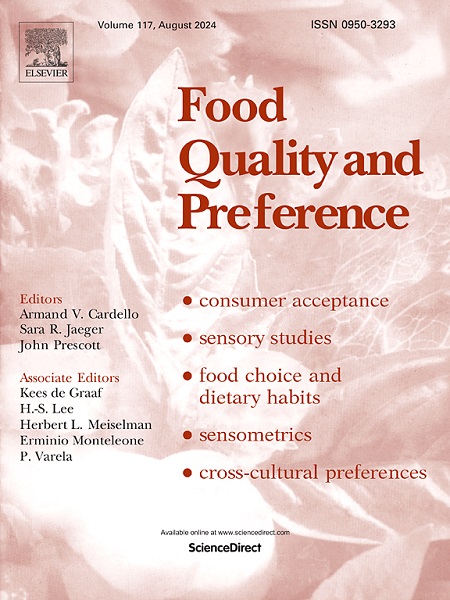Consumer minimalism in local food consumption: The impact of pro-environmental self-identity and locavorism
IF 4.9
1区 农林科学
Q1 FOOD SCIENCE & TECHNOLOGY
引用次数: 0
Abstract
Concerns with global climate change and interest in finding solutions for environmental issues have prompted consumer interest in consuming local food. As a sustainable lifestyle, consumer minimalism has attracted much attention from various research domains. However, in the local food consumption context, research on the antecedents and the impact of consumer minimalism on consumer behaviour remains overlooked. The present research studies the influence of consumer pro-environmental self-identity, consumer minimalism and locavorism on consumers' willingness to purchase local foods. We conducted two online surveys in China. We used PLS-SEM for data analysis. The results of the structural model evaluation show that there is a significant positive relationship between pro-environmental self-identity and consumers' willingness to purchase local foods. This relationship is partly mediated by consumer minimalism and locavorism. Findings of this research advance the theoretical understanding on preferences for local food and minimalistic consumption. The paper also provides practical insights into local food marketing for practitioners.
消费者极简主义在当地食品消费:亲环境自我认同和本土主义的影响
对全球气候变化的担忧和对寻找环境问题解决方案的兴趣促使消费者对当地食品产生了兴趣。极简主义作为一种可持续的生活方式,受到了各个研究领域的关注。然而,在当地的食品消费背景下,对消费者极简主义对消费者行为的前因和影响的研究仍然被忽视。本研究研究了消费者亲环境自我认同、消费者极简主义和本土主义对消费者本地食品购买意愿的影响。我们在中国进行了两次在线调查。我们使用PLS-SEM进行数据分析。结构模型评价结果显示,亲环境自我认同与消费者购买本地食品的意愿之间存在显著的正相关关系。这种关系在一定程度上是由消费者极简主义和本土主义所介导的。本研究的发现促进了对当地食物偏好和极简消费的理论认识。本文还为当地食品营销从业者提供了实用的见解。
本文章由计算机程序翻译,如有差异,请以英文原文为准。
求助全文
约1分钟内获得全文
求助全文
来源期刊

Food Quality and Preference
工程技术-食品科技
CiteScore
10.40
自引率
15.10%
发文量
263
审稿时长
38 days
期刊介绍:
Food Quality and Preference is a journal devoted to sensory, consumer and behavioural research in food and non-food products. It publishes original research, critical reviews, and short communications in sensory and consumer science, and sensometrics. In addition, the journal publishes special invited issues on important timely topics and from relevant conferences. These are aimed at bridging the gap between research and application, bringing together authors and readers in consumer and market research, sensory science, sensometrics and sensory evaluation, nutrition and food choice, as well as food research, product development and sensory quality assurance. Submissions to Food Quality and Preference are limited to papers that include some form of human measurement; papers that are limited to physical/chemical measures or the routine application of sensory, consumer or econometric analysis will not be considered unless they specifically make a novel scientific contribution in line with the journal''s coverage as outlined below.
 求助内容:
求助内容: 应助结果提醒方式:
应助结果提醒方式:


